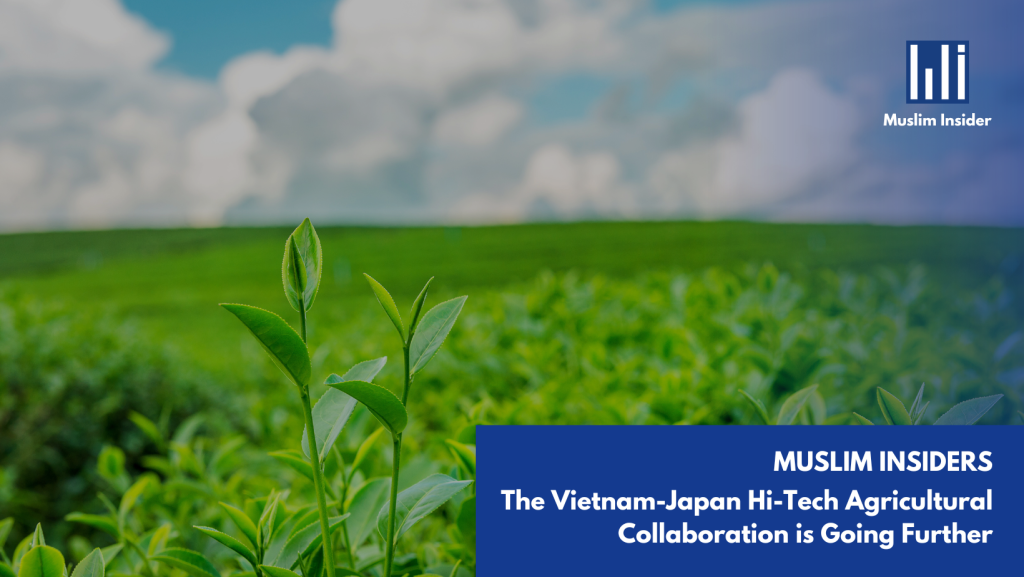The Vietnam-Japan Hi-Tech Agricultural Collaboration is Going Further


According to the Ministry of Agriculture and Rural Development (MARD), the existing cooperation between Vietnam and Japan is further promoted in the area of high-tech agricultural development. Both of these countries’ goals are to gain Japanese investors attention, especially in high-tech agriculture. In order to reach the goal, the ministry is reviewing and building the medium- and long-term vision for Vietnam-Japan Agricultural Cooperation for the period 2025–2028.
“This will supplement two new fields of developing green and sustainable agriculture with the application of advanced technologies and vocational training in the agricultural sector,” said Nguyen Do Anh Tuan, Director-General of MARD’s Department of International Cooperation. He added that Vietnam’s enterprises should have qualified human resources and business plans that will meet the green and sustainability standards of all foreign investors, including Japanese investors. Also, Vietnam will continue to encourage Japanese enterprises to invest in farming value chains such as rice, fruit, vegetable and seafood value chains.
Adding more, Vietnam needs to attract capital from Japan’s official development assistance (ODA) to upgrade the quality management system, animal and plant quarantine system, and food safety control system, thereby meeting international standards as well as Japanese standards. With the recent promoted cooperation in developing Vietnam’s agriculture, Japan has provided ODA to Vietnam in the agricultural sector for a total of over US$1 billion.
At present, MARD coordinates with the Ministry of Planning and Investment to review criteria for attracting investors, meeting green standards, and having technology exchange and connections with farmers and local businesses, Tuan said. He also said foreign investors who meet that criteria will enjoy more incentives than regular investors. “We will also develop handbooks to guide investors in each specific field of the agricultural sector and have orientation for investors in terms of green investment and close connection with Vietnamese farmers.”
According to Tuan, Japanese investment in Vietnam’s agricultural sector now is not commensurate with the potential of the relationship between the two countries. Japan’s investment in hi-tech agriculture in Vietnam is still small-scale and the investors are also small and medium-sized enterprises. The Japanese investors have invested about $1–2 million in developing areas of vegetable, flower or tea production for each project.
“Japan’s total investment capital in Vietnam’s agricultural industry is only about $250 million,” Tuan said. “Of which, Japanese investors have often focused on high-tech agriculture in terms of gene, seed, preservation technology, and deep processing technology.” Despite that, many Japanese investors, such as Fujitsu, Vinamilk and Sojitz Japan, have also invested in Vietnam.
Nguyen Do Anh Tuan, Chief Financial Officer of PAN Group, said the group has invested VNĐ100 billion in the development of Japanese rice production lines. This investment doubles the investment in using production lines with the same capacity from Chinese or Vietnamese partners. He said, “The enterprises need to have a team of qualified and experienced technical staff or recruit new staff meeting the requirements. Because of this human resource, the transfer and application of technologies can be well done, thereby mastering the technologies and developing large-scale production in the future.”
Furthermore, patience is important in cooperation with Japanese partners, as differences in climate, soil, water, and environmental conditions require multiple tests to get the desired results. The Director of the International Cooperation Department, Tuan, points out that Japanese investors possess great technological potential. Therefore, Vietnam can significantly benefit from adopting Japanese technologies, especially high-tech and green technology. Japanese firms bring with them established brands, access to markets, and substantial capital.
To use these advantages effectively, Vietnamese enterprises must pay attention to Japan’s very strict standards for products, qualification of human resources, and management ability. Hence, Vietnamese businesses must prepare resources to meet the exact requirements of their Japanese partners, especially in raw material areas and qualified human resources. — Viet Nam News






